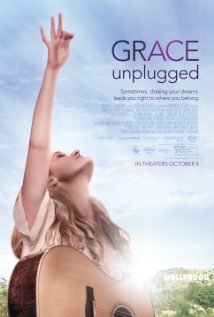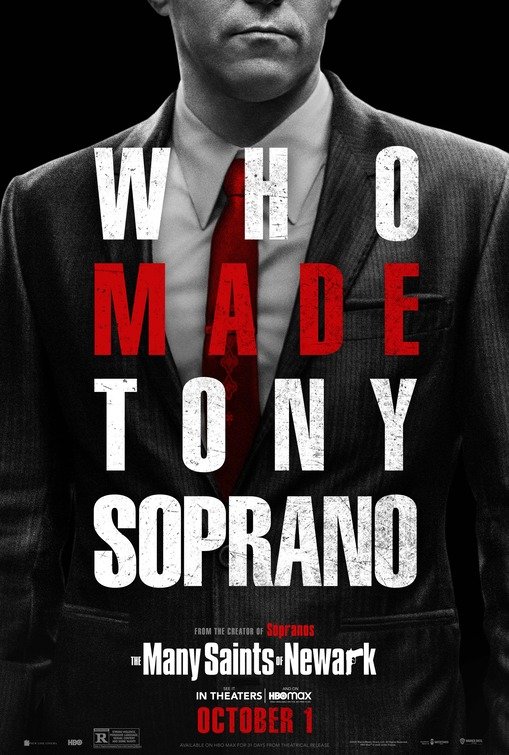“Misses the Mark”

| None | Light | Moderate | Heavy | |
|---|---|---|---|---|
| Language | ||||
| Violence | ||||
| Sex | ||||
| Nudity |
What You Need To Know:
THE MANY SAINTS OF NEWARK is well acted and directed. The whole cast does a good job, but the movie belongs to Alessandro Nivola, who delivers an excellent performance as Uncle Dickie. However, the movie fails to give viewers a strong controlling premise and message for its criminal and family dynamics. It offers a morality tale about the negative consequences of criminal behavior and dysfunctional family relationships, but it’s too light, undeveloped and vague. Also, the move’s ending is anti-climactic. THE MANY SAINTS OF NEWARK also contains a significant amount of foul language, lewd content and strong violence, including some graphic violence.
Content:
Very light, undeveloped, rather vague morality tale shows negative consequences of living a life of crime, and main gangster character tries to make up for his evil/sinful deeds and lifestyle by doing good works, but the movie implicitly seems to show this kind of godless effort is foolish, set in a dark humanist world where Christianity (specifically a Roman Catholic environment) is ineffectual in people’s lives, though an extended Italian family has the priest attend their confirmation party for one young teenage girl in the family, and where a politically correct, strong liberal view of “systemic racism” is seen as the main problem being suffered by the black community in Newark, New Jersey during the late 1960s and the 1970s, plus a side character, who’s in prison for murder but has begun to reform himself morally, overtly mentions a Buddhist philosophical principle about seeing immorality as a psychological problem of being too attached to one’s desires and wants
At least 85 obscenities (including many “f” words by adult characters and a few “f” words by young boys who are friends in one or two scenes), five strong profanities and three light profanities
Some extreme bloody violence occurs such as a gunshot explodes part of a man’s head during a gunfight, some white criminals chase down a young black man who cheated them into a military recruitment office and fire their guns into his body, and a man angrily beats his father to death by viciously slamming his head into a steering wheel after he confronts the father for throwing his young wife down the stairs just like he did the man’s mother, plus some strong violence includes a white man drowns his mistress in the ocean when he learns the woman slept with the black criminal who’s become his criminal rival in the city, a lengthy gunfight occurs between the two rival men’s crews in the streets with people being seriously shot dead, at least one mobster criminal is assassinated by a gunman, police shoot a criminal running away from them during an arrest of some criminals, man drags his father’s body into the father’s auto body shop and sets fire to the body and the shop, two police officers drag a taxi driver out of his cab and seem to start beating him in a recreation of the historical event that instigated the Summer 1967 riots in Newark, NJ, and some scenes featuring those 1967 riots, vandalism, arsons, and looting (one white man driving a convertible through one of the streets gets a small bloody wound on his forehead when someone throws a rock at him, the man gets out of his car and shortly thereafter has to wave his gun at some rioters trying to destroy the car, and rioters throw Molotov cocktails and one hits the trunk of a police car, forcing two officers to get out of the car), etc.
Three brief images or shots of depicted fornication (one seems partially depicted), a man and his wife live with his father, and the man hears his father crudely making love with his new younger wife from Italy, and major male character takes his father’s wife for a mistress after he kills his father in a fit of rage for throwing her down the stairs just like he did his mother and makes his father’s death looks like part of some city rights in 1967)
Upper female nudity after one scene of depicted fornication, and a few images of upper male nudity
Alcohol use
Smoking, brief talk about selling drugs instead of running gambling rackets in the 1970s because the state is about to start a lottery of its own, teenage boy wants to see his moody mother take the prescription drugs for her moodiness that have been recommended by her doctor (he makes a reference to the 1966 Rolling Stones song “Mother’s Little Helper,” which satirically discusses the taking of such tranquilizer drugs by married women and mothers in the 1960s; the song was intended to point out the alleged hypocrisy to adults who complain about teenage drug use when adults are doing a similar thing), and mother complains to her teenage son that she thinks his teenage sister is smoking marijuana; and,
Organized crime, Italian mobsters run a numbers racket, black criminal decides to start his own numbers racket instead of working for the Italian mobsters (this leads to a gang war between the white gangsters and the black gangsters, which the black man freely desires to start, if necessary), dysfunctional families, and boy is expelled from school after his numbers racket among his fellow classmates is exposed.
More Detail:
THE MANY SAINTS OF NEWARK starts in a graveyard with several voiceovers from mobsters and people who were killed by Tony Soprano or by other people. Cut to 1967, a young Tony walks with his favorite uncle, Dickie. Viewers soon learn that Dickie has become a surrogate father to Tony and his sister, Janice, while his father, Johnny, serves a prison sentence. Also, Dickie runs the mob’s numbers racket to the black people living in Newark, New Jersey. His main guy is an ambitious young black man named Harold. Meanwhile, Dickie’s crude father, “Hollywood Dick,” has just brought over a pretty young bride from Italy, Giusseppina.
Tony has grown really close with Uncle Dickie, a rather jovial man who sees Tony as the son he and his wife don’t yet have. It becomes clear, however, that Dickie and his father’s wife are attracted to one another, though Dickie forcefully rebuffs a romantic overture from her in one scene.
The black community erupts into riots when two police officers rough up a black taxi driver, and a false rumor spreads that they killed the man. One night during the riots, Dickie gets into an argument with his father after he hears the father throwing his wife down the stairs just like he did with Dickie’s mother. Suddenly, Dickie is repeatedly and brutally slamming his father’s head into the steering wheel of his car. Dickie then takes the father’s dead body to the father’s auto body shop, where he sets fire to the body and the shop to make it look like the father was skilled by black rioters. Shortly after the funeral, Dickie begins an affair with his father’s widow, Giusseppina, even though he’s in a childless (so far) marriage.
Cut to the 1970s, Tony’s own father is released form prison. Dickie is still in an adulterous affair with his father’s widow, Dickie’s stepmother. Also, Howard has decided to start his own numbers racquet in the black community. This starts a gang war between Dickie and Howard that eventually erupts into violence. To make matters worse, Dickie’s mistress is upset by Dickie disrespecting her and becoming preoccupied with his criminal activity and his own family when his wife finally has a son. She starts a sexual affair with Howard. Meanwhile, Dickie reaches out to his father’s twin brother, who’s in prison for murder. The brother has started to regret his past behavior. He advises Dickie to step away from his nephew Tony, because Dickie’s criminal, immoral behavior is influencing Tony too much. However, Tony still idolizes his uncle and doesn’t understand why Dickie has abandoned him.
THE MANY SAINTS OF NEWARK is well acted and directed. William Gandolfini, the son of the late James Gandolfini who played Tony Soprano in THE SOPRANOS television series, does a good job here. However, the movie belongs to Alessandro Nivola, who plays Uncle Dickie. He plays a friendly guy with an extremely dark side that can erupt in terrible fits of deadly anger. The rest of the cast is also good, especially Ray Liotta, who plays both Dickie’s volatile father and the father’s much calmer twin brother, Vera Farmiga as Tony’s mother, and Michela De Rossi as the young Italian bride. Director Alan Taylor has a long distinguished career directing TV episodes, including THE SOPRANOS, the similarly themed BOARDWALK EMPIRE, and critically acclaimed series like GAME OF THRONES and MAD MEN.
However, the script and the movie itself fail to give viewers a strong controlling premise and message for the criminal and family dynamics in THE MANY SAINTS OF NEWARK. For example, the story seems to offer a morality tale about the negative consequences of criminal behavior and dysfunctional family relationships, but it’s too light, undeveloped and rather vague. Also, the ending is anti-climactic. Overall, the movie shows that Tony Soprano picks up his affinity for criminal activity from his uncle. Also, if you’ve seen a few SOPRANOS episodes, it becomes clear by watching this movie that Tony has also inherited his volatile, violent temper from his uncle. However, this is still presented in such a light manner that it’s not really dramatically powerful or explicit enough to fully explain how this guy ended up being such a volatile mob boss with psychological problems. In one scene, Tony’s flaky mother discusses Tony with a female school counselor. The counselor tells her that Tony is very smart and has a real talent for leadership but needs to apply himself better. Here, the movie tells viewers what’s happening with Tony, but it doesn’t adequately SHOW it to them. It’s a missed opportunity.
Eventually, Uncle Dickie mistakenly tries to step away from teenage Tony on the advice of his father’s twin brother, who realizes the bad influence Dickie’s criminal behavior has on the boy. The movie reaches its peak emotional climax when it shows Tony still trying to reach out for his uncle’s mentorship but being shunned by Dickie. This climax is very sad, because Tony clearly doesn’t know why his uncle is suddenly not there for him. The true answer for this personal relationship, of course, is repentance, turning away from the mobster lifestyle and coming to faith in God through the Gospel of Jesus Christ. Also, though, by the time this happens in the movie, Tony’s uncle has already brutally murdered his father and his mistress, who just happens to be his father’s widow. So, the movie ends up being a tragedy.
THE MANY SAINTS OF NEWARK contains lots of strong foul language, three sex scenes, a few drug references, some graphic violence, brief explicit nudity, and lots of strong violence. Overall, therefore, the movie is unacceptable viewing. If the moral lessons in the movie were stronger and more dramatic, THE MANY SAINTS OF NEWARK could have been a really great gangster movie.


 - Content:
- Content: 

